Idealism as a Philosophical Doctrine:
Idealism is born out of Plato’s “Theory of Ideas”. According to this doctrine, the ultimate supremacy is of ideas. In this way, the real world is “ideaism”, but adding the letter “l” for pronunciation facility is known as idealism. So according to ideaism or idealism, higher values are much more important in human life than anything else.
Idealism holds that the spiritual world is more important than the material world. Only the spiritual world is the essence of reality which is undying, immortal, and true. Nothing beyond the spiritual world is immortal and true. Idealism asserts that reality is to be found in man’s mind, rather than in material nature. It attaches great significance to the study of man and his mind. Human personality is considered the most worthful study, Ross says that “Human personality is of supreme value and constitutes the noblest work of God.”
In this way, we see, that idealism emphasizes the study of man more and more because, unlike animals, man is endowed with higher intellectual powers and shows greater levels of intelligence and discrimination. Man can rise higher and higher and can attain divinity by his own virtuous life dedicated to higher spiritual values of human life.
Idealistic philosophy believes in the chief values of life, namely truth, beauty, goodness, and wisdom. These values of life are not made by us, but their existence is already automatic. These values- truth, beauty, and goodness are of unchanging nature and immortal.
In short, idealism identifies itself with spiritualism, with the ultimate soul force which pervades the whole world and keeps the flame of virtue, goodness, and greatness burning for all times to come.
J. S. Ross briefly describes idealistic philosophy in the following words “Idealistic philosophy takes many and varied forms, but the postulate underlying all is that mind or spirit is the essential world stuff, that the true reality is of a mental character.”
Basic Postulates or Fundamental Principles of Idealism:
The following are the fundamental principles of idealism.
(1) Nature of Reality- Idealism, like all other philosophies, is concerned with the metaphysical question of the Nature of Reality. For the idealists, Ultimate Reality is of the nature of the mind. They hold that the mind or spirit as each man experiences it in himself is fundamentally real and that the totality of the universe is spirit in essence. The physical world is just a manifestation of this great spirit behind it. The physical world is destructible and changeable. The idea behind it, which is the essence of the spirit of the universe cannot be destroyed. Thus the ultimate reality can be understood and expressed only in terms of ideas. It means that the inner world is the real world of eternal nature and reality is found in man’s mind rather than in his physical environment. The world of experiences is more significant than the material universe. The physical world is the body and the spiritual world is the soul. Mind or spirit is the essential world stuff. Therefore, ideas, experiences values, etc., are all mental in character and are more meaningful and important than anything else. Spirit, mind, or idea is the ultimate or absolute reality. This basic premise concerning reality is normally shared by idealists and is called Transcendentalism. To know the reality of the spiritual world is to know the reality of mind and soul. It is a sort of self-realization of the main aim of human life.
(2) Man- a spiritual being- Idealism believes that man is essentially a spiritual being whose chief aim is to develop his spiritual nature. Man’s spiritual nature is not something that is added to man, but it is the very essence of his being. Man creates his own world of virtue, and his creativity achieves higher and higher levels of art in many areas. As a spiritual being man exercises free will and is a responsible personality for his actions. The development of human personality, therefore is the chief aim of life. Ross has, thus, rightly remarked that “Human personality is of supreme value and constitutes the noblest work of God.”
(3) Mind- The idealists believe the Mind is another fundamental postulate. Every person has a “mind” or “self” or “spirit”, which is spiritual. Individual “minds” are part of the universal mind. As such man is a microcosm within the macrocosm. The “mind” or “self”, which is a part of the “Mind” manifests itself in and through the body, which is matter. The final reality is the “mind”. It is more important than “Matter”, and is the seat of the final truth. Things exist and become reality only when they are perceived by the mind. The physical world exists in so far as it responds to the demands of the mind. Mind is ultimately spiritual, not material. Idealists believe that the mind is all-powerful and can answer any question that it can raise. Real knowledge is gained through the mind, and not through senses. God or the universal mind is the source of all human values, and the goal of all human activities is the realization of this universal mind in one’s own self.
(4) Knowledge- Another very significant postulate of idealism is about the nature of knowledge. Knowledge is the product of reason and is obtained through the activity of the mind. Knowledge acquired through the activity of the mind (intuition) is more important than the knowledge acquired through sense. Idealists use both deductive and inductive logic for understanding the physical universe as this knowledge is basic to the knowledge of the ultimate.
(5) Values- Values of Truth, Goodness, and Beauty are real and eternal. They exist in absolute forms. The Truth is an intellectual value, the Beauty an esthetic value, and the Good a moral value. Together, they constitute “Good”. Idealism insists on the realization of these three eternal values of life or ideals of life. The spiritual values are undying and permanent. The realization of these values is the realization of God. Idealism believes that values (ideals) are not made by man but they already exist in the world. Man only discovers them if he makes an effort. These values are created by the Absolute Self or Ultimate Being. In the pursuit of these absolute values, man rises higher and higher in the moral plane till he attains divinity. All the capacities of man- knowledge, feeling, and willingness are to be harnessed to the full for the achievement of these spiritual values. These values will enable man to realize his true and ultimate self.


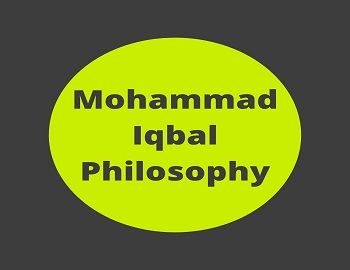

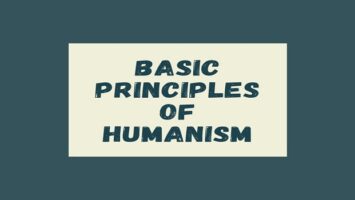

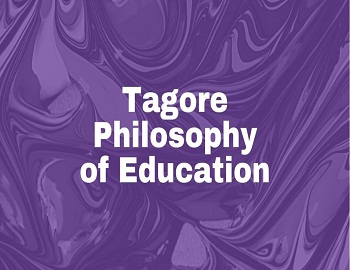
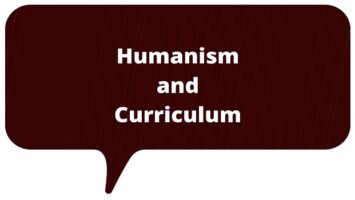
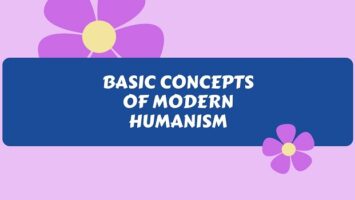
Comments (No)